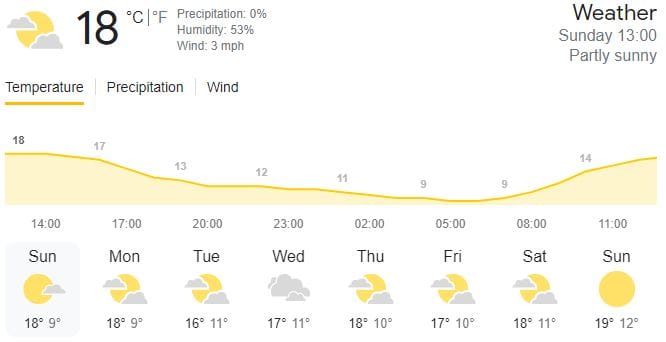Angels and Shepherds

In Luke's account of Jesus’ birth, found in chapter 2, we find several layers of interest within this brief yet very rich passage.
We read of the shepherd's quick response to the angel's announcement verifying their message when they find the newborn Jesus in the manger in Bethlehem. We read about the rapid spread of the shepherd's testimony which causes awe and wonder in the hearts and minds of the people. And all the while Mary quietly treasures these moments, contemplating their significance and meaning for her and her baby boy.
The passage concludes with the fulfillment of Jewish customs as Jesus is circumcised and named, fulfilling the angel's directive and Jewish custom. This brief concise account encapsulates themes of immediate faith, divine revelation, proclamation, contemplation, and the fulfillment of prophecy, all woven into the miraculous birth of Jesus Christ, inviting our reflection on the profound impact of these events in God's grand plan for humanity's salvation.
Firstly; what exactly are Angels?
The announcement of the Messiah’s birth was given by an angel to some unnamed shepherds in a field at night.
Our word Angel comes from the Greek word, “Angelos” and also the Hebrew word “MaláK”, which both mean “messenger”. Angels are supernatural beings who serve God, and are sent from the heavenly realm, especially as His “Messengers”.
And there were shepherds living out in the fields nearby, keeping watch over their flocks at night. An angel of the Lord appeared to them, and the glory of the Lord shone around them, and they were terrified. But the angel said to them, “Do not be afraid. I bring you good news that will cause great joy for all the people. Today in the town of David a Savior has been born to you; he is the Messiah, the Lord. This will be a sign to you: You will find a baby wrapped in cloths and lying in a manger.”
Suddenly a great company of the heavenly host appeared with the angel, praising God and saying,
“Glory to God in the highest heaven,
and on earth peace to those on whom his favour rests.”
Luke 2:8-14
Why tell shepherds and not Priests or Scribes?
For me there are several reasons, first and foremost it’s a revelation of God’s grace.
Choosing shepherds reveals his grace towards humanity, for shepherds were seen as outcasts by the religious leaders as their work made them ceremoniously unclean, which kept them from going to the temple for weeks on end to be made clean. Israel's religious leaders had a name for them, the “Am ha’aretz” which means the "common people". But here’s the thing, God doesn't just call the rich and mighty, or the self-righteous, he calls the poor and the lowly!
Another straightforward reason is that the “Messiah” would come from the line of King David.
Then Isaiah said, “Hear now, you house of David! Is it not enough to try the patience of humans? Will you try the patience of my God also? Therefore, the Lord himself will give you a sign: The virgin will conceive and give birth to a son, and will call him Immanuel.
Isaiah 7:13-14
King David was the youngest son of Jesse, who slew Goliath and was chosen by God through the Prophet Samuel to become the King of Israel. So, it makes sense for God to let the shepherds know that the long-awaited Messiah, the new King of the Jews, from the line of King David, had been born, remember King David was once a Shepherd boy!
When the angels had left them and gone into heaven, the shepherds said to one another, “Let’s go to Bethlehem and see this thing that has happened, which the Lord has told us about.” So they hurried off and found Mary and Joseph, and the baby, who was lying in the manger. When they had seen him, they spread the word concerning what had been told them about this child, and all who heard it were amazed at what the shepherds said to them. But Mary treasured up all these things and pondered them in her heart. The shepherds returned, glorifying and praising God for all the things they had heard and seen, which were just as they had been told. On the eighth day, when it was time to circumcise the child, he was named Jesus, the name the angel had given him before he was conceived.
Luke 2:15-21
What about the date of Messiah’s birth
Traditionally we celebrate the birth of Jesus on Dec 25th, however, some have suggested that this cannot possibly be the time of year when Jesus was born citing verse 8 for the basis of their reason,
And there were shepherds living out in the fields nearby, keeping watch over their flocks at night.
They postulate that Shepherds wouldn't be out watching their flocks at night in December as it would be too cold, and instead suggest that Jesus must have been born in a warmer month. But remember that the Jews lived as nomada in sleeping in tents in the wilderness for 40 years after leaving Egypt
In addition, if we look at the weather data for Bethlehem in December, we find that the average is 14 °C during the day and 7 °C at night, which isn't really that cold!
Looking at today's weather data for Bethlehem (31/12/23), makes this even more evident, It is a Mediterranean country after all!

Furthermore in John 10: 1-18 where we read the parable of the Good Shepherd, we need to bear in mind that Jesus used anologies that people could relate to when he preached. In this parable we read of the gatekeeper who kept watch over the flocks and opens the gate for the Shepherd who calls forth his sheep from the pen. Tje sheep come to him because they recognise his voice. For an animal to know someone's voice, they need to spend a lot of time in each other’s company, would you not agree?
So, the temperature wasn't a problem for the Shepherds in December, they were a hardy lot, and watching over the sheep was the norm.
Attendance matters:
The story of the birth of Jesus begins with the shepherds being told of his birth and records their response to the angelic announcement. After the angels leave, the shepherds are left with a mixed bag of feelings, fear, awe, trepidation, and determination. Yet with this good news, in their joy they want to see the child for themselves and so they go to Bethlehem to witness the events they've been told about. Their immediate response reflects their faith and willingness to act upon the angels/ messenger's divine message to them.
When the shepherd’s find Mary, Joseph, and the baby Jesus, the angels' message is confirmed as true. The sight of the newborn Messiah lying in a manger, as foretold, strengthens their faith in the miraculous nature of his birth.
Then out of pure joy they share the news of Jesus' birth with others and in doing so the shepherds become evangelists. Their testimony spreads, causing awe and wonder among all who hear it. This underscores the significance of their experience and its impact on those around them.
In the midst of all this, Mary quietly tries to take the events in. She treasures these events and ponders over them, perhaps she recognises the significance of her role in God’s divine plan and the extraordinary nature of her child's birth, who is the promised Messiah and King of the Jews who would one day give his life as an atonement sacrifice for the sins of the world!
The passage concludes by noting the fulfillment of the Jewish tradition of circumcision on the eighth day after Jesus' birth. The ceremony in which the baby is formally named, Jesus, as directed by the angel Gabriel before his conception. The name "Jesus" itself carries great significance, as it means "God saves," signifying the role and mission of Jesus in bringing salvation to all humanity.
Overall, this passage highlights the immediate response of the shepherds to the angel’s message. By going and finding the baby Jesus as told, their faith is strengthened and validated when they witness the prophesied event for themselves which in turn prompts the sharing of this miraculous news with everyone they encounter.
And so, in this, we too should reflect on our response when we hear the Holy Spirit’s calling in our hearts. Do we respond like the Shepherds and go in search and like Mary who said to the Angel Gabriel “I am the Lord’s servant” Lk 1:38, or do we reject his call on our lives in fear of the unknown and turn away?
May our hearts always be open to hearing the Lord and accepting his will for our lives and not our own.
Happy New Year,
Trev.